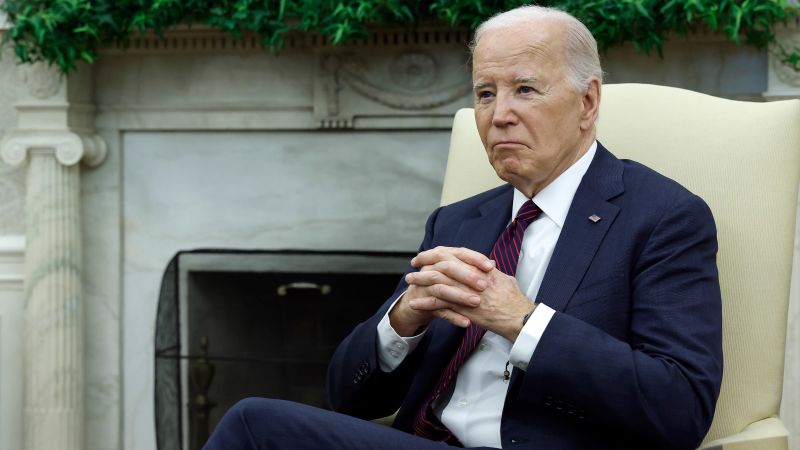The Department of Justice has refused to release the audio files of President Joe Biden’s interview with special counsel Robert Hur to House Republicans, arguing that Republicans have not established a legitimate legislative purpose for demanding these recordings. A letter from DOJ Assistant Attorney General Carlos Uriarte to House Oversight Chair James Comer and House Judiciary Chair Jim Jordan sets the stage for a showdown with Republicans threatening to hold Attorney General Merrick Garland in contempt of Congress for withholding the recordings of the interviews conducted with the president and his ghostwriter Mark Zwonitzer.
Republicans find their impeachment inquiry into the president stalled, as the likelihood of impeachment has decreased due to lack of evidence or support within their narrow majority. The DOJ’s refusal to release the audio recordings has left Republicans grappling with how to end their probe without conclusive evidence to move forward. Uriarte stated that the department has already cooperated by providing transcripts of the interviews, addressing allegations made by Republicans as part of the impeachment inquiry.
The DOJ raised concerns that Republicans may want the audio files for political purposes rather than legislative or impeachment-related reasons, prompting doubts about the motives behind the demands for these recordings. The department also called out Comer for not viewing classified documents related to Hur’s case made available to him by the DOJ two months ago, despite claims that they are crucial to the investigation into Biden. Comer alleged on Fox News that the documents may be linked to influence-peddling schemes involving Biden’s family.
In response to demands for the audio recordings, the DOJ emphasized the privacy concerns related to audio recordings as opposed to written transcripts. Uriarte mentioned the possibility of audio files being manipulated to increase privacy concerns for witnesses and impact their willingness to cooperate in future investigations. The DOJ argued that releasing the audio files could have negative consequences on witness cooperation and breach the privacy rights agreed upon during interviews.
Uriarte accused Republicans of seeking the audio files for inappropriate reasons and creating unnecessary conflict by demanding information that the DOJ has principled reasons to protect. The ongoing dispute between the DOJ and House Republicans highlights the challenges faced in the impeachment inquiry process and the struggles to obtain critical evidence for investigations. The DOJ’s refusal to release the audio recordings adds another layer of complexity to the political tension surrounding the investigation into President Joe Biden.













